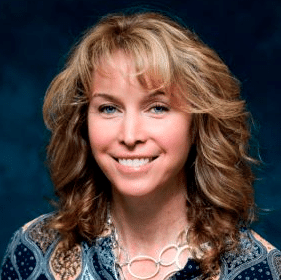Starting the Competency-Based Education Journey…Again
CompetencyWorks Blog
 I spent 10 years of my career working in a high school that successfully transitioned from being very traditional to one that is now competency-based. Although in reality the work is never really complete, it’s still satisfying to look back and celebrate just how far you’ve come. For those of us in the competency-based education (CBE) trenches, we know that changing the way people think about teaching and learning isn’t easy. It’s difficult to let go of long held beliefs about how schools should operate and how classrooms should be run. The transition to a CBE model also takes time. Educators must commit to years of hard work in order to make CBE a reality.
I spent 10 years of my career working in a high school that successfully transitioned from being very traditional to one that is now competency-based. Although in reality the work is never really complete, it’s still satisfying to look back and celebrate just how far you’ve come. For those of us in the competency-based education (CBE) trenches, we know that changing the way people think about teaching and learning isn’t easy. It’s difficult to let go of long held beliefs about how schools should operate and how classrooms should be run. The transition to a CBE model also takes time. Educators must commit to years of hard work in order to make CBE a reality.
Not long ago I hit the professional reset button and accepted a position in a district that was just beginning to develop a CBE system. I knew that going back to the “old way of doing school” would be difficult, but like a true CBE educator I was eager to apply what I had learned in my previous setting to a new one. However, no two schools are alike and no transformational journey is the same. (For school leaders who are looking for a prescriptive path or a step-by-step manual to CBE, you’re out of luck, those don’t exist.) Instead of creating a CBE “to do” list, I spent a considerable amount of time observing current practices and gaining an understanding of what was already working. Three themes emerged from my observations that could be universally applied to any school embarking on the path to CBE.
- Collaboration is a driving force. Change is rarely easy; even for those who wholeheartedly embrace it. Anyone who has ever played a team sport or worked on a team can attest to the power of the collective. Whether it’s identifying competencies, writing performance tasks, creating rubrics, or analyzing student data, working as a team results in products that are far superior to anything created in isolation. Not to mention that collaboration significantly lightens the workload for individual educators and provides an opportunity for collegial feedback.
- Provide resources and support before making changes. It’s easy to be excited about CBE and to hope for a rapid change to your educational landscape. However, I would caution against initiating practices without laying the philosophical groundwork. The biggest hurdle for those starting their CBE work is to embrace the fundamental shift from a focus on teaching to a focus on learning. Before instituting changes, it’s important for all involved to be able to speak to the Why? of the change. Providing teachers with researched-based resources and giving them time to ask questions and reflect on the change is a vital part of the process that should not be ignored.
- Start where it makes sense to start. There isn’t one correct entry point into CBE. Every school has its strengths and weaknesses. To make a positive start, begin with what is already working. Maybe the focus is on assessment, maybe it’s on work-study practices or rubrics. Leverage the positive practices and use that momentum to develop your competency framework. It will eventually become clear that CBE isn’t one thing, it’s many components working together to create an environment focused on students’ demonstration of mastery.
Whether this is your first time developing a CBE system or you’re a seasoned CBE veteran, remember that every school is unique and the path to CBE will also be unique. Also know that the work will be challenging and it will take time, so have patience and celebrate every success, no matter how small.
See also:
- A Review from an iNACOL Newbie
- Competency-Based Education: The Break from Tradition that Our Schools Need
- What Not To Do: Six Problematic Practices in the Transition to Competency Education
 Ann Hadwen is the 6-12 Curriculum Administrator for the Exeter Region Cooperative School District in Exeter NH. She was previously an Assistant Principal at Sanborn Regional High School in Kingston, NH where she was part of a team that developed a nationally-recognized K-12 competency based learning system. Before becoming an administrator she taught social studies at the middle and high school levels in both Massachusetts and New Hampshire. She has a B.A. in Political Science from the University of Portland an M.A.T. from Simmons College, a M.Ed. from Rivier College, and is currently enrolled in an Ed.S. program at the University of New Hampshire. She is also a partner in Education Design Studios, an organization that holds an annual summer conference focused on CBE and personalized learning.
Ann Hadwen is the 6-12 Curriculum Administrator for the Exeter Region Cooperative School District in Exeter NH. She was previously an Assistant Principal at Sanborn Regional High School in Kingston, NH where she was part of a team that developed a nationally-recognized K-12 competency based learning system. Before becoming an administrator she taught social studies at the middle and high school levels in both Massachusetts and New Hampshire. She has a B.A. in Political Science from the University of Portland an M.A.T. from Simmons College, a M.Ed. from Rivier College, and is currently enrolled in an Ed.S. program at the University of New Hampshire. She is also a partner in Education Design Studios, an organization that holds an annual summer conference focused on CBE and personalized learning.